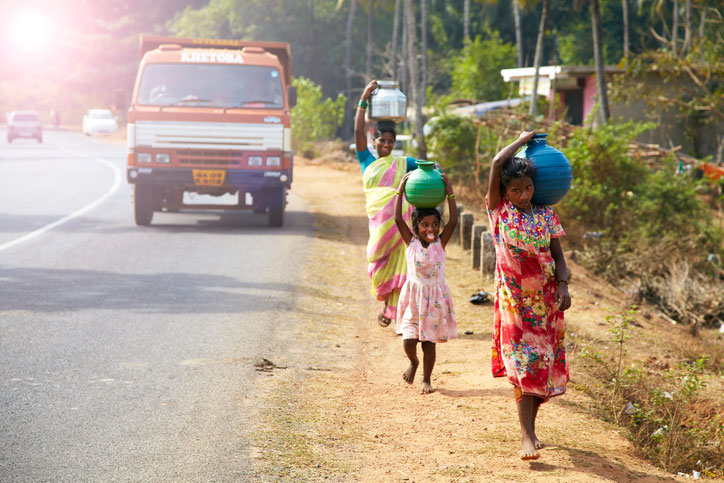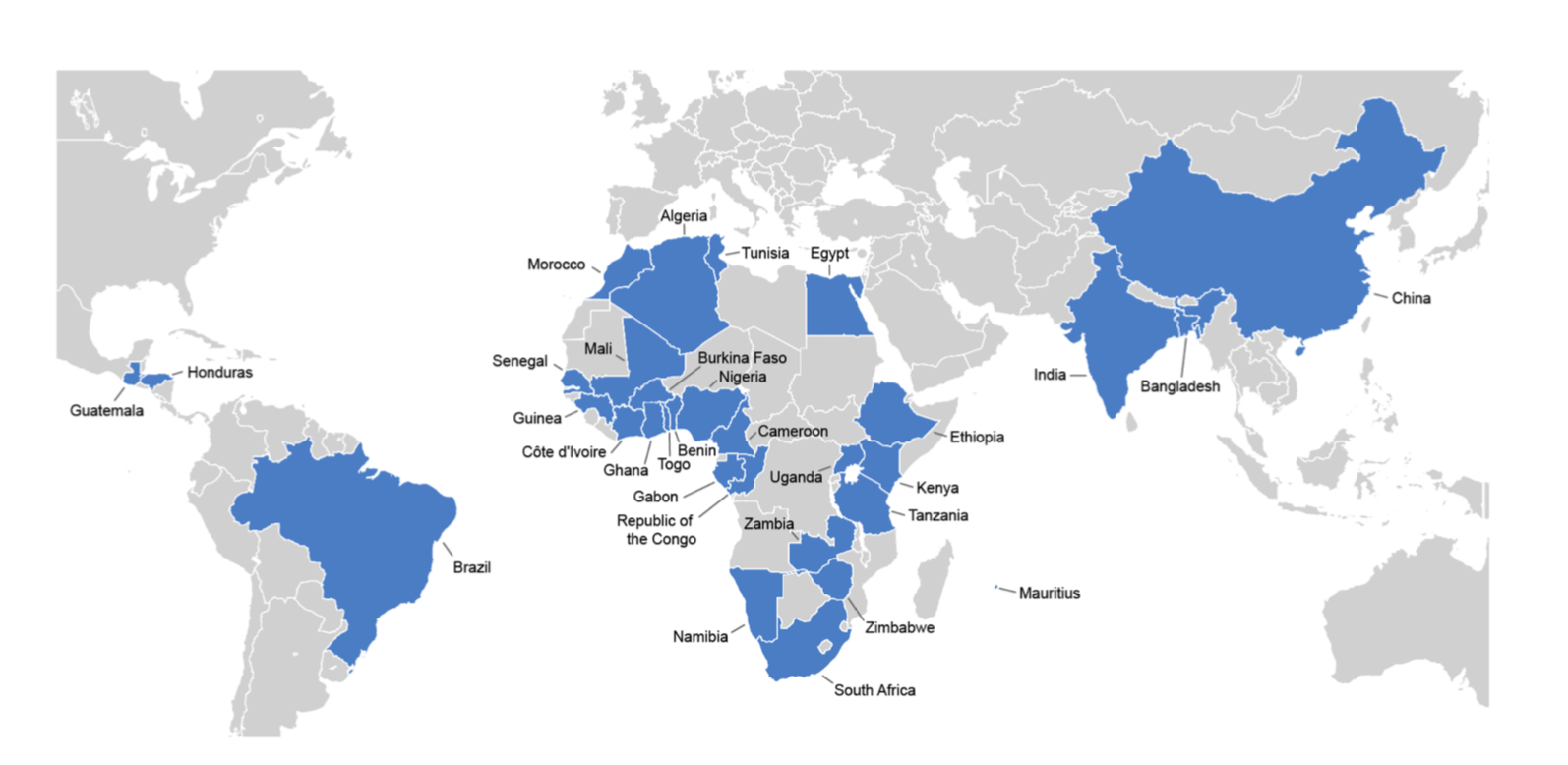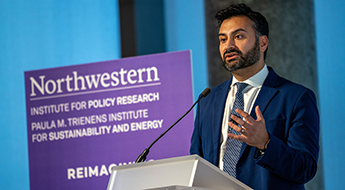Scale Identifies Who’s Water Insecure Globally
IPR anthropologist’s scale provides snapshot of people’s experiences during global water crisis
Get all our news
You can’t manage what you can’t measure. The world is finally realizing that water doesn’t grow on proverbial trees—and now we can measure this precious resource with much higher resolution.”
Sera Young
IPR anthropologist

As the world struggles to stop a global pandemic and reel in climate change, globally comparable information about water insecurity is crucial for action.
A new study by IPR anthropologist Sera Young, research associate Hilary Bethancourt, and colleagues shows that the 12-item Individual Water Insecurity Experience Scale (IWISE) can measure how water insecurity impacts people around the world. These results, published in BMJ Global Health, make this the first tool to permit comparisons of individuals’ experiences with water access, use, and reliability across diverse climates, geographies, and cultures.
“What's so important about this study is that it establishes that the IWISE Scale can be used to compare water insecurity experiences across low- and middle-income countries, as well as to identify individuals within those countries who experience greater degrees of water insecurity,” Bethancourt said.
The study is based on nationally representative data from 43,970 individuals from 31 low- and middle-income countries, including Brazil, China, India, and much of sub-Saharan Africa. To get these data, the researchers partnered with the UNESCO-IHP Secretariat and Gallup, which conducted the survey between Sept. 2020 and Feb. 2021 as part of its World Poll. Participants were asked questions such as how often they worried about having enough water, were unable to wash their hands because of problems with water, and went to bed thirsty.
“The breadth [of the data] is one of the things that’s really special,” Young explained. “And that we have identified a scale that works across incredibly diverse settings opens up a world of possibilities for policy and practice.”
Map of the 31 countries where the Individual Water Insecurity Experience Scale was administered by the Gallup World Poll.
The scale can be used to track the prevalence of water insecurity to inform decisions about policies and investments, Young continues, as well as investigate the consequences of water insecurity for communities and individuals.
The study finds the IWISE scale is reliable, meaning that the items in the scale work together consistently. It performs equivalently across countries, so water insecurity experiences can be compared from one country to another. And the scale is valid, accurately reflecting how the experiences of individuals' water insecurity differ across countries and among individuals within countries.
In 2019, Young and over 50 experts published the Household Water Insecurity Scale (HWISE), which measures water insecurity at the household level. This scale has already been taken up by dozens of development agencies, including UNICEF and USAID. Additionally, Mexico is currently implementing HWISE in its national nutrition survey. The IWISE Scale builds on this work by making finer-grain measurement possible. Such individual-level measurement allows researchers to pinpoint exactly who is being “left behind.” This is important because experiences with water in the same household can differ widely by gender, age, and other factors.
Because the IWISE Scale offers global data collection on individual-level water insecurity, practitioners and policymakers will now be able to better tailor interventions to the populations most at-risk. IWISE will also provide insights into the progress made towards global development goals.
“We would like to lead the way in rethinking how the world’s water insecurity is measured, and the best way to do that is with great data,” Young explained.
Young and her colleagues are currently fundraising to implement the IWISE Scale in 2022 in the 140 countries in which Gallup operates.
“You can’t manage what you can’t measure,” Young said. “The world is finally realizing that water doesn’t grow on proverbial trees—and now we can measure this precious resource with much higher resolution.”
Sera Young is associate professor of anthropology and global health and an IPR fellow. Hilary Bethancourt is a research associate in anthropology and at IPR.
Photo credit: iStock
Published: October 6, 2021.


